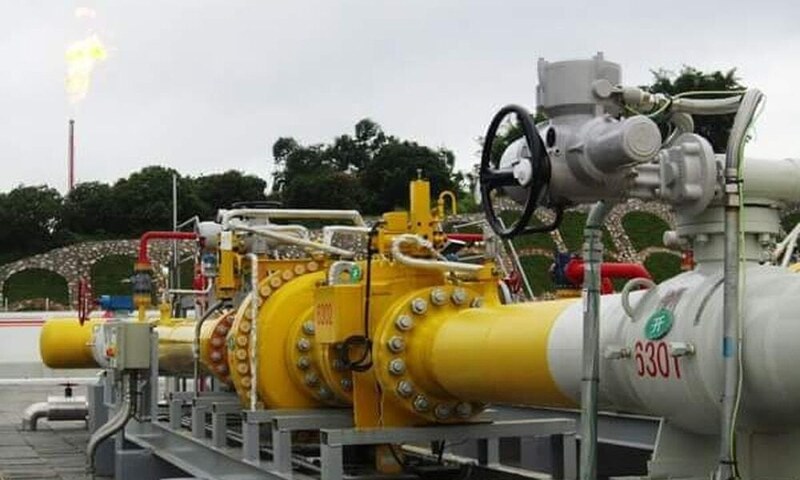ISLAMABAD: The All Pakistan Textile Mills Association (APTMA) has called for transparency in the tariff structures of gas companies and demanded a comprehensive framework for full disclosure, verification, and reconciliation of Unaccounted-for-Gas (UFG) and RLNG cost actualisation data.
In its intervention request submitted to the Oil and Gas Regulatory Authority (OGRA) ahead of Sui Northern Gas Pipelines Limited’s (SNGPL) tariff adjustment hearing scheduled for Thursday (today), APTMA stated that OGRA was legally bound to hold a duly noticed public hearing and determine the final RLNG sale price before any recovery could be billed to consumers.
According to the APTMA, the SNGPL issued RLNG actualisation invoices for July 2025— payable by August 12, 2025— without any prior adjudication. The OGRA had previously determined and notified the “actual RLNG sale prices” on December 24, 2024, later revised on March 28, 2025, and only then issued a public hearing notice in October 2025— effectively reversing the lawful sequence of regulatory action.
APTMA slams high energy tariffs
The APTMA argued that while the true-ups were delayed for reasons best known to OGRA, such delays could not justify the absence of due process. It urged that the impugned bills be withdrawn, recoveries stayed, and a fresh hearing convened based strictly on verified data.
The legal position was reaffirmed by the Petroleum Division through an Office Memorandum (No. DG (Gas)/ Policy/ 2025) dated August 21, 2025, which sought legal opinion on the legitimacy of OGRA’s delayed RLNG price actualisation for 2015–2022.
The memorandum noted that OGRA failed to conduct the required monthly actualisations under the 2015 and 2016 federal policy guidelines and acknowledged that industry had already factored energy costs into goods sold locally and abroad, rendering retrospective recoveries both unreasonable and commercially untenable.
APTMA emphasised that a well-governed energy market depends on regulatory discipline, where provisional tariffs are reconciled promptly with actual, prudently incurred costs. Delays extending up to a decade, it argued, undermine regulatory credibility. Regular reconciliation is not a procedural formality— it is the core mechanism ensuring integrity in pricing, preventing utilities from retaining excess recoveries, protecting consumers, and promoting efficiency.
According to correspondence from the Directorate General of Gas, the OGRA failed to conduct timely reconciliations and instead consolidated multiple years of differentials into a single recovery exercise, violating statutory principles of prudence, transparency, and prospective tariff setting.
The Law Division, in its reply dated August 27, 2025, declined to issue a definitive interpretation, citing that the issue of retrospective RLNG recovery was subjudice before superior courts. APTMA stated that this ambiguity underscores a lack of regulatory accountability in Pakistan’s gas pricing framework, warning that such mismanagement could accelerate deindustrialization, erode export competitiveness, and weaken employment and investment in the textile sector.
The APTMA’s intervention maintains that RLNG pricing must be cost-reflective, transparent, and prospective. Any retroactive revision of tariffs, it said, violates the OGRA Ordinance, distorts efficiency incentives, and unfairly penalises sectors that have already accounted for prior energy costs.
The association identified flaws in the RLNG actualisation process, particularly in the treatment of UFG. It said industrial consumers were being unfairly charged as if they were located in the most loss-prone sections of the gas network. UFG represents the volumetric difference between gas entering and exiting the system, and APTMA argued that these costs should be allocated based on actual loss patterns by class and pressure zone.
However, the OGRA currently applies a system-average UFG percentage to all consumers, regardless of network type or efficiency— a practice APTMA called “factually inaccurate and methodologically indefensible.” Industrial off-takers supplied through high-pressure, short, metered laterals, it said, typically experience technical losses below 3 percent, while system-average UFG rates range between 8.6 percent and 12.3 percent.
Most UFG losses, APTMA noted, occur in low-pressure domestic distribution networks characterized by aging infrastructure, defective meters, and unauthorised use. OGRA’s own consultant reports confirm that elevated UFG levels are concentrated in retail distribution rather than industrial segments.
RLNG imports began in March 2015, when the government declared RLNG a petroleum product under the Petroleum Levy Ordinance, 1961. The Federal Government’s July 2015 and June 2016 policy guidelines required OGRA to determine RLNG prices monthly and perform timely true-ups. However, APTMA pointed out that nearly a decade later, temporary transitional measures remain in force, and no separate UFG benchmark for RLNG has been established—despite its cost being 2.5 to 3 times higher than indigenous gas.
The APTMA urged the OGRA to immediately implement a framework ensuring full transparency, verification, and publication of UFG and RLNG cost actualisation data. It recommended that OGRA: (i) publish audited UFG and RLNG cost data for FY 2015–2022, verified from its own records; (ii) disclose detailed Sales Metering Station (SMS)-wise datasets categorised by pressure and consumer class, including major industrial clusters such as Sundar, Sheikhupura, Faisalabad, Lahore, Gujranwala, and Sialkot; (iii) upload audited UFG accounts for all industrial-dominant SMSs on OGRA’s website; (iv) provide auditable numerical data for the 84-month RLNG period (March 2015–June 2022) with supporting documentation for all cost components; and (v) apply class-wise, pressure-based UFG benchmarks in all future tariff determinations to ensure cost-reflectivity and compliance with Sections 6 (2), 7, and 43B of the OGRA Ordinance, 2002.
The APTMA further emphasised that tariffs must be determined prospectively, with prompt true-ups in the following period. Where timetables have been missed, it is recommended that OGRA publish a corrective glide path with written justifications and maintain a transparent regulatory account showing inflows and outflows by cost head.
Concluding its intervention, the APTMA proposed specific corrective measures: (i) withdraw retrospective bills and refund any recoveries made;(ii) publish month-wise cost workbooks detailing every cost component including landed price, exchange settlements, re-gas tolls, and UFG loss allocators; (iii) enforce ring-fencing by excluding retail-network UFG from industrial tariffs; (iv) conduct prudence tests on emergency spot procurements and net recoveries against responsible parties; and (v) restore the true-up timetable to a monthly or quarterly basis, backed by audited data and a publicly accessible running balance.
Copyright Business Recorder, 2025


